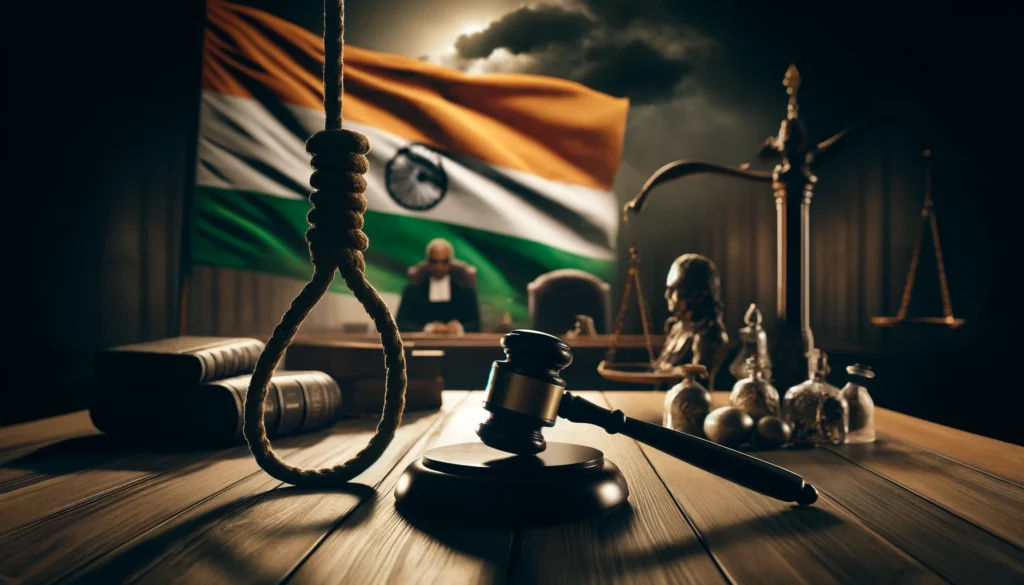Published on: 13th June, 2025
Authored by: Keerthana Venugopal
Introduction
The recent judgment delivered by the Chhattisgarh High Court has sparked significant debate on the interpretation of criminal law and the constitutional validity of the marital rape exception. The case, involving the alleged rape and death of a woman at the hands of her husband, has raised serious concerns regarding the legal recognition of female autonomy within marriage.
In this case, the High Court ruled that the husband could not be prosecuted under Sections 376 and 377 of the Indian Penal Code (IPC) for engaging in non-consensual and unnatural sexual acts with his wife, who was above the age of 18, citing the marital rape exception. This verdict has stirred public outrage and ignited legal and ethical discussions surrounding the rights of married women in India.
Facts of the Case
The case involves the alleged sexual assault and subsequent death of a woman by her husband, a 40-year-old man. He forcibly inserted his hand into her rectum, causing severe internal injuries that resulted in extreme abdominal pain and excessive bleeding. The incident occurred on December 11, 2017. The victim later died from her injuries.
In February 2019, the trial court convicted the husband under Sections 376, 377, and 304 of the IPC and sentenced him to ten years of rigorous imprisonment. However, the Chhattisgarh High Court overturned the conviction, holding that the marital rape exception under Section 375 precluded prosecution under Sections 376 and 377. Furthermore, the court also acquitted the accused under Section 304, citing insufficient evidence and procedural lapses.
Dying Declaration
A dying declaration was recorded by a magistrate in which the victim stated that her condition was caused by forcible sexual intercourse by her husband. However, the declaration did not mention the name of the doctor in whose presence it was recorded, which is a crucial requirement to establish the victim’s mental fitness.
This omission cast doubt on the reliability of the declaration. The High Court, without further inquiry or seeking clarification from the magistrate, dismissed the dying declaration’s evidentiary value, contributing to the acquittal.
Key Legal Issues
- Validity of the marital rape exception under Section 375 IPC.
- Evidentiary value of the dying declaration and procedural lapses in its recording.
- Interpretation of Section 304 IPC and justification of acquittal.
Marital Rape Exception under Section 375 IPC
Section 375 of the IPC defines rape as non-consensual sexual intercourse under various circumstances. However, Exception 2 to the section excludes sexual acts by a man with his own wife—provided she is not under fifteen years of age—from the definition of rape.
This outdated exception undermines the concept of bodily autonomy and consent within marriage, effectively treating the wife as the property of the husband. While the law might have reflected prevailing social norms when it was enacted in 1860, its persistence in modern legal frameworks is alarming.
Notably, this exception has also been carried forward unchanged into Section 63 of the Bharatiya Nyaya Sanhita, 2023, revealing a legislative reluctance to confront the realities of marital sexual violence.
Procedural Lapse in Dying Declaration
A dying declaration holds significant weight in criminal proceedings. However, it must be recorded in the presence of a medical professional who can attest to the mental soundness of the declarant. In this case, while the magistrate recorded the statement in the presence of a doctor, the doctor’s name was not documented.
This omission rendered the declaration procedurally defective. However, instead of investigating or seeking clarification, the High Court dismissed the declaration entirely. Such a rigid approach to procedural compliance, especially in sensitive cases, risks undermining substantive justice.
Interpretation of Section 304 IPC
Section 304 IPC deals with punishment for culpable homicide not amounting to murder. The accused’s act, which caused grievous injuries leading to death, prima facie fell within this provision. However, the High Court set aside the conviction due to the trial court’s failure to provide detailed reasoning under this section.
Under Article 226 of the Constitution, High Courts have the power to examine evidence and rectify errors. In Shivdeo Singh v. State of Punjab, AIR 1963 SC 1909, it was affirmed that the High Court holds review jurisdiction. Despite this, the Chhattisgarh High Court did not utilize its authority to scrutinize the evidentiary gaps or procedural flaws, instead choosing to acquit the accused.
Interpretative Approaches Ignored
The judgment strictly followed the literal interpretation of Section 375 IPC. However, modern jurisprudence permits the use of purposive and golden rule interpretations:
-
Purposive Interpretation: This approach focuses on the intent behind a statute, ensuring that laws evolve with societal progress and constitutional values.
-
Golden Rule Interpretation: This rule allows courts to depart from literal meaning to avoid unjust or absurd outcomes.
Both interpretative tools could have been invoked to uphold justice and human dignity, especially in light of growing recognition of women’s rights and constitutional morality.
Implications
From a societal standpoint, the judgment risks reinforcing patriarchal notions that deprive married women of autonomy and dignity. It may embolden harmful perceptions about spousal control and immunity in cases of sexual violence within marriage. The absence of judicial engagement with modern interpretative techniques or human rights standards has troubling implications for the future of gender justice in India.
Conclusion
This case starkly highlights the legal and moral vacuum in India’s approach to marital rape. While India has made strides in advancing women’s rights, the continued recognition of Exception 2 under Section 375 IPC (and its replication in BNS) is a major step backward.
Marriage does not nullify a woman’s bodily autonomy or her right to dignity. Legal reforms must reflect contemporary values of equality, and courts must exercise their interpretative powers to uphold justice rather than reinforce outdated norms.
As society progresses, so too must the law. Ensuring justice for women—irrespective of their marital status—requires not just legislative reform but judicial courage and a commitment to constitutional principles.
References
-
“Marital Rape in India,” Drishti IAS, 15 February 2025, https://www.drishtiias.com/daily-updates/daily-news-analysis/marital-rape-in-india-2
-
Saumya Uma and Tharika Sai S. Mohan, “The Chhattisgarh HC Marital Rape Judgment Has Perversity and Illegality Writ Large,” The Wire, 23 February 2025.
-
TNM Staff, “Wife Dies After Husband’s Sexual Act, Court Says No Rape and Acquits Him,” The News Minute, 13 February 2025.
-
Akash R. Goswami, “Dying Declaration,” iPleaders, 15 August 2019.
-
Shivdeo Singh v. State of Punjab, AIR 1963 SC 1909.
-
Ankur Mittal & Kushaldeep K. Manchanda, “Scope and Extent of Review Jurisdiction of the Court,” Law Finder Live, 3 January 2023.
-
Sonal Garg & Nivedita Singh, “Marital Rape: Historical and Comparative Analysis,” MSLR, 3 May 2022.




